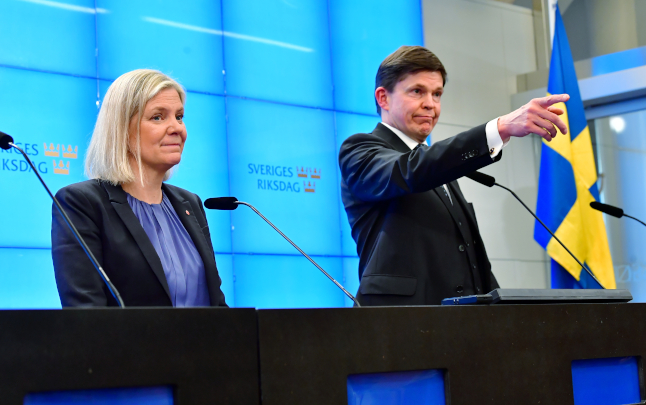Andersson’s deadline to secure a deal with parliamentary parties to enable her to become Sweden’s new prime minister ran out at noon on Monday. After ten days of negotiations with the Left Party, she has yet to reach an agreement, meaning that she has not yet secured enough votes for her prime minister bid to be secure.
After reporting the results of negotiations to parliamentary speaker Andreas Norlén, he announced that he will nominate her to be Sweden’s new prime minister, meaning that parliament will decide whether to approve or reject her nomination on Wednesday. Andersson had not requested more time to negotiate.
The vote will be held at 9am on Wednesday.
The government’s new budget will also be approved or denied in a separate vote later on Wednesday afternoon.
Under Sweden’s system of negative parliamentarianism, a prime ministerial candidate needs only to convince a majority of members of parliament not to vote against them in order to take power. But with the slim margins in the Swedish parliament, that is not actually a safe guarantee.
Andersson needs to win the votes or abstentions of both the Centre Party’s 31 MPs and the Left Party’s 28 MPs. Together with the government coalition parties’ 100 Social Democrat MPs and 16 Green Party MPs, this would bring her to the magic majority of 175 mandates (the right-wing parties have 174). She has already reached an agreement with the Centre Party.
Norlén said in the press conference that he has chosen to nominate Andersson despite her not securing an agreement with the Left Party, stating that “there is time before the vote to complete negotiations”.
If the Left Party and the Social Democrats do not reach an agreement by Wednesday, Andersson risks losing the prime minister vote in parliament – meaning that Norlén may try and find another candidate for the position, or that Andersson may have to restart negotiations.
The speaker has four chances to nominate a prime minister – if all of these fail, then there will be a new election.




 Please whitelist us to continue reading.
Please whitelist us to continue reading.
Member comments